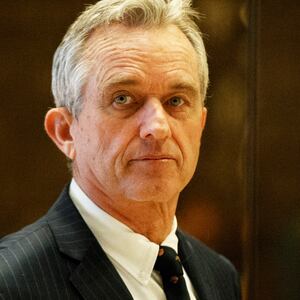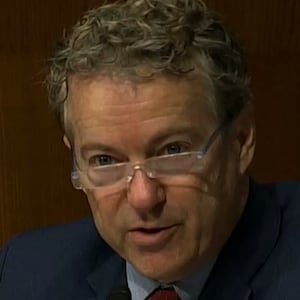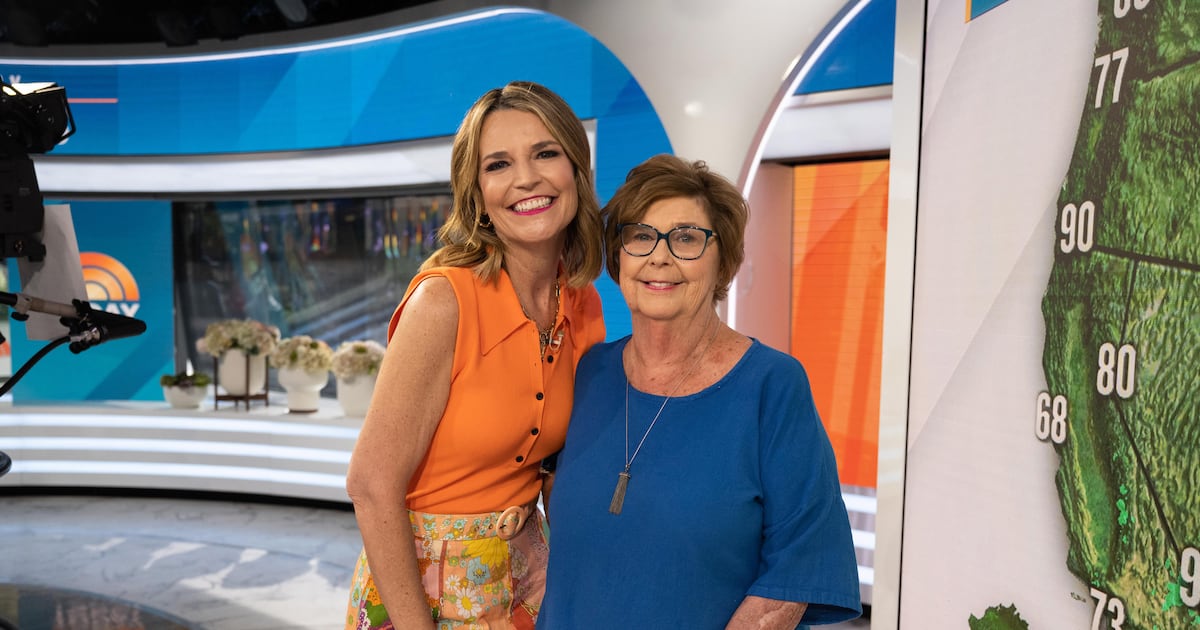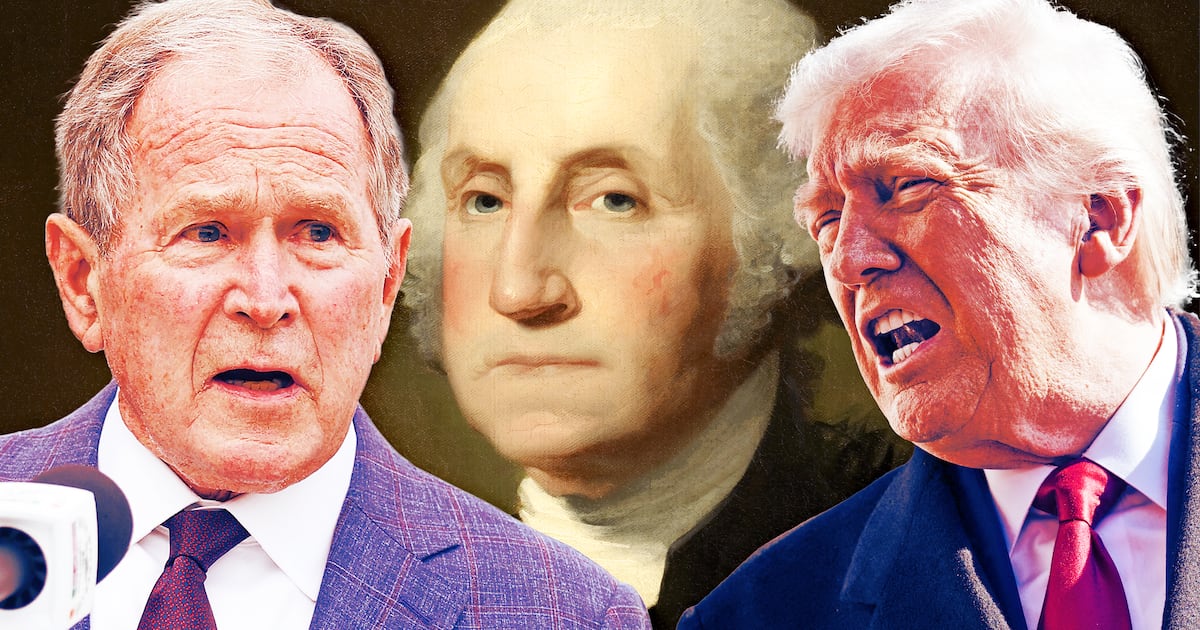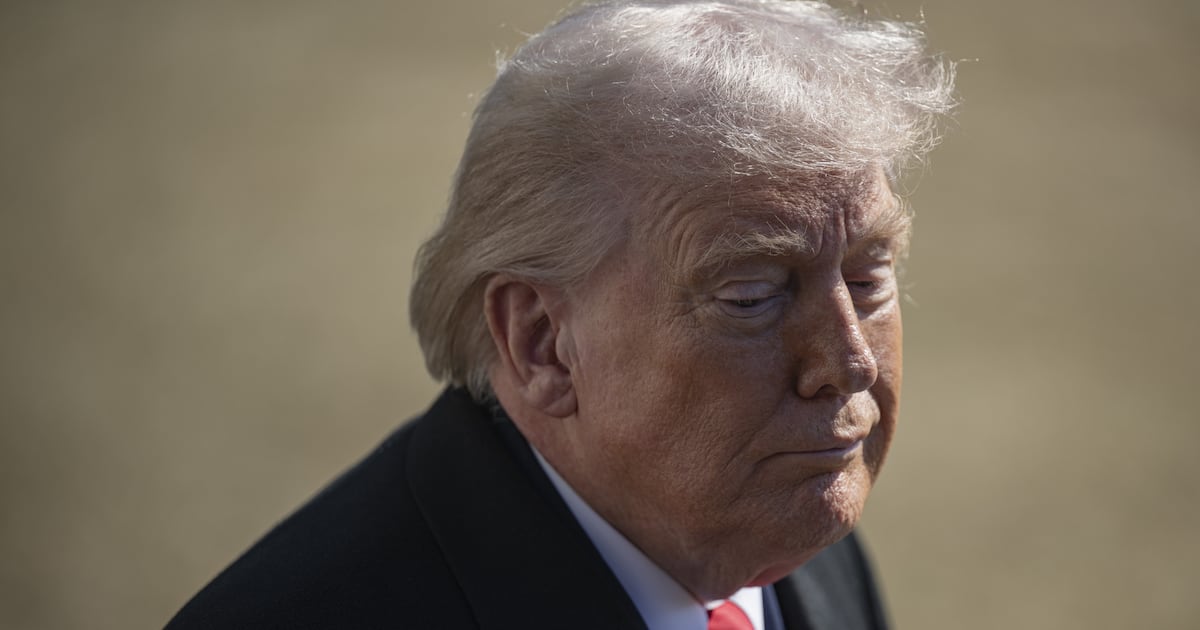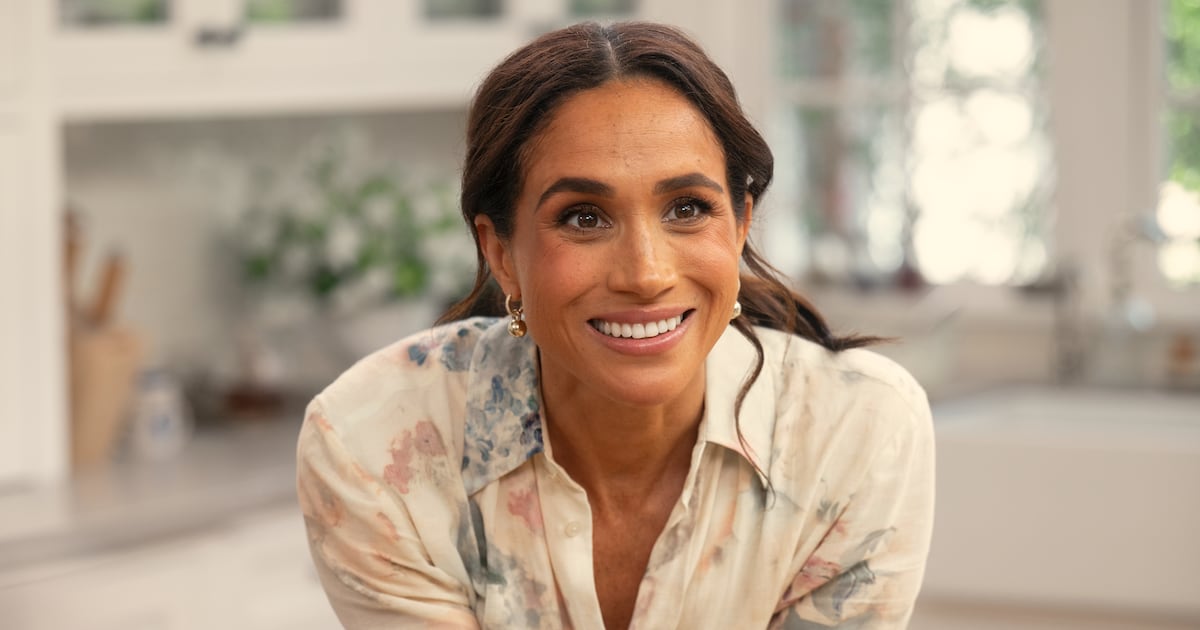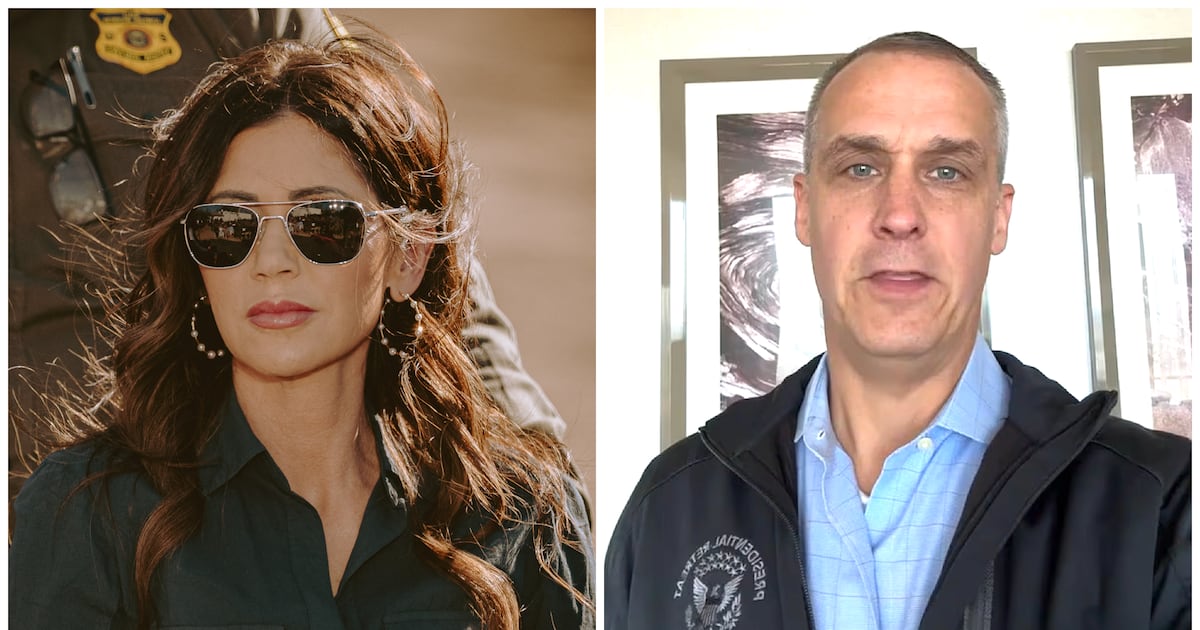The Centers for Disease Control reported on Wednesday that there were now 695 cases of measles in 22 states, the highest since the disease was virtually eradicated in the United States in 2000. It’s only April.
On Friday, several days after the milestone was hit, President Donald Trump briefly addressed the emerging health crisis when asked by reporters.
"They have to get the shot,” he said. “The vaccinations are so important. This is really going on now, they have to get their shots.”
The president has not always been so definitive about vaccines. In fact, he has repeated and incorrectly linked them with autism. In the early days of the administration, he met with anti-vaxxer Robert Kennedy Jr., who said the president asked him to lead a commission on the safety of immunizations. That commission never formed.
While Trump has only recently addressed the measles outbreak, many of his would-be Democratic challengers haven’t comprehensively tackled it either. Instead, they’ve largely blamed the Trump administration for making a crisis worse by first by giving a platform to misinformation and then by cutting critical programs that educate, fund, and ensure that children are vaccinated.
Those of the 20 contenders contacted by The Daily Beast who responded to questions on the current outbreak were uniformly supportive of vaccinations.
“While there are some who disagree, Sen. Sanders believes opting out creates deadly risks for children suffering from illnesses who may be not be able to be vaccinated and are exposed to children who are not vaccinated,” said Josh Orton, a spokesman for Sen. Bernie Sanders (I-VT).
Orton said Trump’s policies have worsened the increasingly dire situation.
“Instead of addressing this public health crisis, the Trump administration has made things worse,” he said. “The number of children without health insurance has increased for the first time in a decade. His budgets would cut Medicaid and slash funding for the CDC Immunization Program.”
For example the spending bill the president signed into law in February 2018 included a $1.35 billion cut from the Centers for Disease Control and Prevention’s Prevention and Public Health Fund over the next 10 years.
Those cuts, lawmakers warn, have made a direct contribution to worsening general preparedness for diseases like measles. Sen. Elizabeth Warren (D-MA) made such a charge in a Senate hearing in early March. After an exchange with a doctor on the panel, Warren slammed the administration for attempting to make cuts to critical programs.
“This administration has repeatedly sought to cut the Prevention and Public Health Fund, which supports key immunization programs, and they've continued their efforts to weaken the Medicaid program, which covers all of the recommended vaccines for children and for many adults as well,” she said.
Sabrina Singh, a spokeswoman for Sen. Cory Booker (D-NJ), said as president, Booker would “do everything possible to educate the public on the spreading of measles and highlight the necessity and availability of vaccines, while also working with his administration and governors in states to contain the spread of the virus."
One of those governors, presidential contender Jay Inslee (D-WA), said through a spokeswoman that the federal funds can make a huge difference in an outbreak.
“We need federal resources and leadership for a national vaccine initiative spearheaded by Center for Disease Control in partnership with states to counter anti-vaccine messages and halt the number of parents who are not vaccinating their children,” a spokeswoman for the governor told The Daily Beast last month. “The governor strongly urges Congress to provide sustained, predictable and increased funding for a strong public health system and a national vaccine initiative. The initiative should support further research to enhance our understanding of vaccine hesitancy and build an evidence base on how to counter hesitancy and increase vaccination rates.”
In Washington State there have been 72 confirmed cases of measles, according to the Washington State Department of Health.
Sen. Kamala Harris’ (D-CA) campaign said only that she believes people should be vaccinated, pointing to her time as attorney general when her office defended lawsuits filed after the implementation of a California law that eliminated personal belief exemptions from vaccines for school children. The bill was introduced in the wake of a measles outbreak in 2014 that began in Disneyland.
A spokesman for South Bend Mayor Pete Buttigieg said some exemptions for personal or religious objections would only be permitted “if states can maintain local herd immunity and there is no public health crisis.”
“The law of the land for more than a century has been that states may enforce mandatory vaccination for public safety to prevent the spread of a dangerous disease,” spokesman Chris Meagher said.
The question of whether vaccines should be mandated and the degree to which there can and should be exemptions has proven tricky in states across the country and for federal lawmakers as well. Lawrence O. Gostin, Faculty Director at the O'Neill Institute for National and Global Health Law at Georgetown Law, was part of a group of public health experts to call for federal action in a March op-ed in the Hartford Courant.
Gostin said it’s likely that lawmakers believe this should remain state issue and don’t want to alienate certain religious communities. But, he said, a federal component was needed in a response because diseases don’t respect state lines.
“The problem is that as the most infectious disease, measles can't be isolated to any single state. It is a national (even international) problem requiring a federal solution,” he told The Daily Beast. “The current measles outbreaks originated in Israel, went to NYC, and is now spreading through the country. No single state can do anything about it.”
Lawmakers remain hesitant to adopt this approach though. During a CNN town hall earlier this month, Sen. Kirsten Gillibrand (D-NY) was asked whether “as the next president of the United States” she “would you support mandatory vaccination except in the case of medical exception?”
Gillibrand, whose home state in currently in the throes of a measles outbreak, responded that she needed to study whether a federal response was needed.
“I think parents have been afraid,” she said. “I think they've been made afraid by rumors and myths and, you know, fake news. So I think that we need to do a much better job of educating parents about the essential nature of vaccines.”
Ultimately, Gillibrand was not ready to commit to a federal mandate.
“I just want to research it a little more because I haven't thought about if it's a state's rights issue, how many states already mandate it,” she said when pressed by CNN’s Erin Burnett. “ If you made a federal mandate, what the impact would be.”
She added, “I’m not against it. It may be a perfectly good idea, but it's the first time I heard the idea, so I actually want to look into it.”
In fact, only Rep. Seth Moulton (D-MA) who entered the race this week, contended a federal solution is what is needed to respond to the current measles outbreak.
“We should tie federal education funds to stricter vaccine compliance, and we should provide vaccines at low or no cost to ensure access is never an issue,” he said in a statement to The Daily Beast. “Measles are bad. Vaccines are good. Those truths, for lack of a better term, are self-evident. Not vaccinating kids is dangerous for them and a public health risk for everyone.”
Additional reporting from Sam Stein, Scott Bixby, Gideon Resnick


